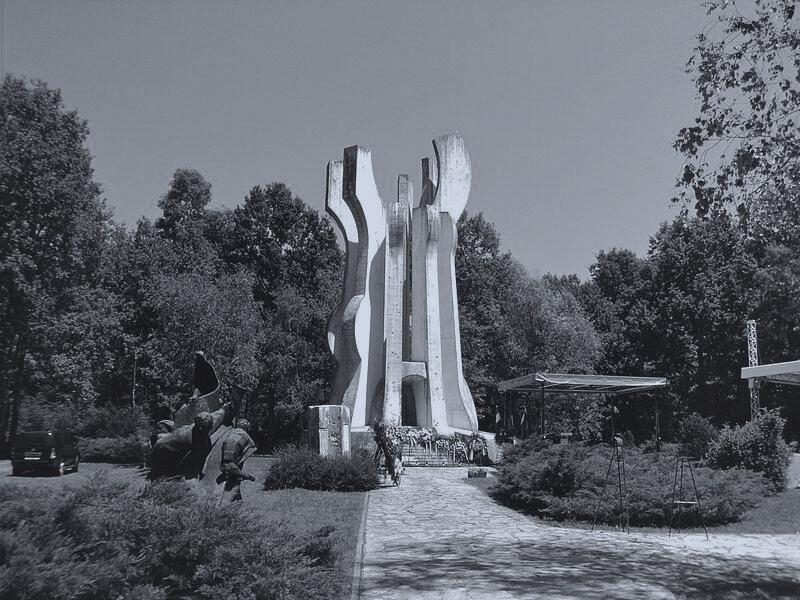GLOBAL NETWORK OF PSYCHOLOGISTS FOR HUMAN RIGHTS



The goal of the GNPHR Committee of Human Rights Groups in Psychology Organizations is to collect information about current human rights structures in psychology organizations (eg committees, task forces, work groups, and the like) and to promote the formation and development of organizational structures to support human rights work Information about activities in psychology organizations is gathered through an online survey available in English and Spanish Organizations are encouraged to complete the survey and join the committee!

The Global Network of Psychologists for Human Rights encourages andsupportsactionsbypsychologistsandpsychologyorganizations to defend and promote human rights. This resource guide is part of that mission. It was developed by a committee of the Global Network - the GNPHR Network of Human Rights Groups in Psychology Associations.
Today, 192 countries are signatories to the Universal Declaration of Human Rights (UDHR), which has been codified in laws and conventions. Professional associations of psychologists often refer to the UDHR in their codes of ethics or other sets of professional standards, and many find a human rights framework useful in considering how they should use psychological science and practice to support human well-being The support for human rights is an active, ongoing process.
Many psychology organizations apply their science and practice to the public good, but not all use a human rights framework to do so. Utilizing a human rights framework can place these activities within a well-established and defined international legal and philosophical structure that provides clear guidance for organizational decision-making on issues related to societal good. Moreover, it provides a common language for associations from different parts of the world to understand one another and cooperate when addressing similar topics.
The goal of this brochure is to support the use of a human rights framework in association activities, programs, and decision-making by providing illustrations of existing human rights programs within psychology organizations We hope that we each can benefit from the experiences of others.
Based on information gathered thus far, psychology organizations carry out their human rights work in four main ways: Advisory committees, sections, task forces, or generally distributed throughouttheorganization’smission.
In the following, you will read the experiences of psychology associations in incorporating human rights into their organizational structure. These descriptions collectively provide models of how associations organize their human rights work and can serve as models for others to use.
The Norwegian Psychological Association (NPF) is a professional society for those who are authorizedaspsychologistsinNorway
It formed a Human Rights Committee over 20 years ago as an advisory committee. Details of the history of this group can be found in Sveaass (2019) “The Human Rights Committee at the Norwegian Psychological Association: 20 Years of Work and Future Challenges.”
In this work, the close connection between psychology and human rights is discussed through a presentation of the Human Rights Committee in the Norwegian Psychological Association. The importance of human rights education for a human rights-based approach in psychology is highlighted. The article describes the political events and the strengthening of the international human rights field that inspired the establishment of the committee and the definition of its goals. Main areas are presented, such as the psychological needs of refugees and their rights in resettlement countries, including the right to rehabilitation of victims of torture and the situation for separated minors seeking asylum, and their need for protection and care. Furthermore, human rights in mental health care, focusing on the rights of persons with disabilities, as well as children’s rights, and state obligations to prevent violence and abuse are central concerns. The right not to be discriminated or marginalized is emphasized and the need for psychologists to be involved in protection against discrimination.
An international perspective focusing on psychologists involved in human rights abuses or psychologists themselves under threat is discussed as part of the committee’s engagement. The close collaboration with civil society organizations has enabled the committee to work with alternative reports to international monitoring mechanisms as part of periodic reporting, both to UN Treaty bodies and to the UN Human Rights Council (Universal Periodic Review). Finally, the importance of human rights-based psychology, and how joint initiatives can strengthen respect and promotion of rights, are reflected upon.
Sveaass, N (2019) The Human Rights Committee at the Norwegian Psychological Association: 20 Years of Work and Future Challenges European Psychologist 24(2), 99-207

TheBritishPsychologicalSociety(BPS)isaprofessionalbodythatrepresentspsychologists andpromotestheadvancementofpsychologyintheUnitedKingdom.
In 2021, the BPS Ethics Committee established a steering group on psychology and human rights that was much influenced by the work of the European Federation of Psychologists’ Associations (EFPA) group on the same topic The initial membership was drawn from the Ethics Committee and others with expertise in the human rights area to help the Society draw up plans for how it would fit best into new organizational structures that were being developed at the time. By August 2022 the terms of reference were finalized for a Human Rights Advisory Group, that would work alongside the new Strategic Board on Equality, Diversity, and Inclusion. Currently, in 2023, there has been a call for membership and the new group is in the process of being established The aims are in the Terms of Reference and begin with this statement:
“The Human Rights Advisory Group is an advisory body of the Equality, Diversity and Inclusion Strategic Board, its aim is to provide specialist direction and leadership on Human Rights in Psychology affecting the United Kingdom, Europe and wider world in line with agreed objectives and actions.“
The initial plan is that the committee will address BPS activities with regard to the broad areas of civil, economic, cultural, social, and political human rights, with special emphasis of human rights of the child, disability, and mental health (further information available here)
The Psychological Society of Ireland (PSI) is the learned and professional body for psychologyandpsychologistswithintheRepublicofIreland.Itwasestablishedin1970.The society has approximately 4,000 members and 10 paid administrative staff to run the society
Within this national structure, the Special Interest Group (SIG) is a young and small human rights and psychology group. This was established in late 2021 and it currently includes 21 members. Despite its youth and size, its impact has been quite good - with events well attended and publications widely circulated. The group was established as Special Interest Group, rather than a committee, at the request of PSI leadership. The rationale being that, within the PSI structures, SIGs are open to the membership and tend to be more active, e.g. running events, than committees. Committees tend to be closed with a narrower remit. The group is voluntary; there are no paid group members and available budgets are very small, although there are paid staff within the PSI who can offer limited support. Group members comprise psychologists with different professional identities and training who pursue their own areas of interest and who collaborate on cross-cutting issues of human rights and psychology. The group is in its very early days, and it is still finding its feet
The PSI has had an implicit commitment to human rights prior to the establishment of the SIG The PSI has produced statements and guidelines that are consistent/aligned with human rights approaches/positions prior to the establishment of the SIG in Human Rights and Psychology. The SIG has contributed to some of these statements and will in the future Other Divisions and SIGs within PSI also engage in activities that are aligned with human rights and psychology principles independent of the HR SIG.
TheCro society psycho The Psych occasi Psych confer Promo About past fi on th Psych events public organi the co huma colleag the C huma book t During Sectio comm health the p Sectio the S Octob human rights symposium on every annual Conference of Croatian Psychologists

The Dutch Association of Psychologists (Nederlands Instituut van Psychologen, NIP) is the largest professional association of psychologists in the Netherlands. It represents more than18,000psychologistsinallfieldsandsectors.
Within the association, the Network Human Rights & Psychology was established in 2014. Instead of belonging to one specific sector, this network has an overarching status, since human rights play a role for psychologists in all fields The Network has the support of the general board, and a direct line of communication exists. The Network maintains a social media page through LinkedIn and can be contacted by any member of the Dutch Association of Psychologists The Network regularly organizes webinars for members of the Association, for example, about the integration of refugees in the work field. Other activities include regular contributions to the monthly magazine of the Association and involvement in activities around the remembrance of the abolition of slavery in the Netherlands.
The basis of human rights and psychology is manifested in the inherent dignity of all human beings, as defined in the Universal Declaration of Human Rights (UDHR, 1948), with dignity, autonomy and inclusion/non-discrimination as basic principles. Human rights serve as an ethical framework for psychologists, while psychologists simultaneously contribute to the promotion and fostering of human rights through their professional knowledge of human behaviour, their therapeutical methods, and their expertise in the area of social psychology Psychologists are increasingly being involved in the implementation of diverse human rights laws: the United Nations Convention Against Torture (UNCAT), the United Nations Convention on the Rights of the Child (CBC), the Convention on the Rights of Persons with Disabilities (CRPD), health as a fundamental human right (medical ethics, compensation of services concerning interpretation and translation, compensation of the own contribution within healthcare and the influence of socio-economic circumstances on health), the International Convention on the Elimination of All Forms of Racial Discrimination (CERD) and the implementation of the convention, with particular attention for minority groups (Convention on the Elimination of All Forms of Discrimination Against Women, CEDAW).
THE INTER-AMERICAN SOCIETY OF PSYCHOLOGY (SOCIEDAD INTERAMERICANA DE PSICOLOGÍA - SIP)
TheInter-AmericanSocietyofPsychology(SociedadInteramericanadePsicología-SIP)isa federation whose members include psychologists from Argentina, Bolivia, Brazil, Canada, Chile,Columbia,CostaRica,Cuba,TheDominicanRepublic,Ecuador,ElSalvador,Guatemala, Haiti, Honduras, Mexico, Nicaragua, Panama, Paraguay, Peru, Puerto Rico, Uruguay, United States,andVenezuela.
TheInter-AmericanPsychologicalSocietyhasthreemaingoals*:
01 Provide means of direct communication between psychologists and scientists in related fields in North, Central and South America and the Caribbean, and promote the development of behavioral sciences in the Western Hemisphere
02 Contribute to international understanding through a broader understanding of cultural differences and encounters beyond national boundaries
03 Help promote research and academic and exchange among the nations of the Americas
*from the website https://sipsych.org/sobre-sip/
In 2022, SIP established the Commission on Human Rights to create a forum that is focused on promoting the incorporation of Human rights in the work of psychology Its mission is to “Contribute from psychology to the development of a culture of peace through the creation of international networks that enable the promotion, respect, and protection of Human Rights.”. Its vision is to “be a body of the Inter-American Psychological Society that articulates efforts to promote knowledge and respect for Human Rights, in order to generate institutional positions regarding the challenges that people face in terms of respect for their Human Rights”
ThegoalsoftheCommissiononHumanrightsareto:
Promote training, research, and intervention activities in psychology and human rights.
Promote dialogue scenarios for the development of public policy with a human rights approach.
Promote visibility in the media and the social incidence of human rights violations.
Currently, the Commission has 5 members.
The American Psychological Association (APA) is the leading scientific and professional organization representing psychology in the United States, with more than 146,000 researchers,educators,clinicians,consultants,andstudentsasitsmembersandacentral officeofabout600staff
APA established a temporary Task Force on Psychology and Human Rights, charged with producing a report reviewing and making recommendations for APA’s human rights work. The report identified that through its actions - e.g. position papers, congressional advocacy, UN engagement - the APA had engaged in efforts to promote and protect human rights implicitly, but without the clarity or commitment that a fully operationalized theoretical framework would provide The task force provided that framework with its “Five Connections Between Psychology and Human Rights”: 01
Psychologists possess human rights by virtue of being human as well as specific rights essential to their profession and discipline 02 Psychologists apply their knowledge and methods to the greater realization of human rights 03 Psychologists respect human rights and oppose the misuse of psychological science, practice, and applications and their negative impact on human rights 04 Psychologists advance equal access to the benefits of psychological science and practice; and, 05 Psychologists advocate for human rights.
Based on that Task Force re APA Council of Representa Psychology and Human Rig
“As such and in keeping resolves to align its programmatic activities wi practices as articulated in Human Rights and relate treaties, comprising inter political, economic, socia resolution announces APA Between Psychology and the Task Force report, as connections between hum enacting the mission, goal plan; and that APA su foundational human rights and training of psychologis through postdoctoral train racism and bias against m as to global inequalities”
Since the passage of the Re been reorganized into a primarily focuses on LGBT and women’s rights, as well rights perspective through t
The APA is well establishe striving to integrate a h foundational level within producing freely accessible materials and resources to support psychologists’ engagement in human rights issues
Huminuik, K, O'Connor, M, Dockett, K, Kallivayalil, D J, McFarland, S G, & Wyndham, J M (2022) Moving Human Rights to the Forefront of Psychology: Summary of the Final Report of the APA Task Force on Human Rights American Psychologist https://doiorg/101037/amp0000897

The Psychological Society of South Africa (PsySSA) is the professional body representing psychologyprofessionalsinSouthAfrica ItadvancesSouthAfricanpsychologyasascience and profession of global stature and promotes psychological praxis as relevant, proactive, andresponsivetosocietalneedsandwell-being
After Nelson Mandela was released from imprisonment in February 1990, leaders of the Psychology Against Apartheid Committee (largely black) engaged with the largely white Psychological Association of South Africa about unity in organized psychology. From its birthing on 28 January 1994 in the crucible of the pursuit of human dignity, equality, and respect for all, the Psychological Society of South Africa, located itself within a necessary human rights framework.
The Preamble to the PsySSA Constitution proclaims:
"We acknowledge psychology’s historical complicity in supporting and perpetuating colonialism and the apartheid system we commit ourselves to:
Transforming and redressing the silences in South African psychology to serve the needs and interests of all South Africa’s people;
Developing an organizational structure for psychology that reconciles historically opposed groups, gives a voice to hitherto excluded users of psychological knowledge and skills, and ensures transparent accountable governance of the Society to serve the democratically expressed wishes of its membership;
Ensuring that the Society remains an organ of civil society without an overt or covert loyalty to any political party;
Advancing psychology as a science, profession, and as a means of promoting human well-being;
Actively striving for social justice, opposing policies that deny individuals or groups access to the material and psychological conditions necessary for optimal human development, and protesting any violations of basic human rights…”
It is apposite to note that the United Nations General Assembly (UNGA) on 16 December 1966 labeled apartheid as a crime against humanity (https://legal.un.org/avl/ha/cspca/cspca.html). On 30 November 1973 the UNGA adopted the International Convention on the Suppression and Punishment of the Crime of Apartheid, with Portugal, South Africa, the UK, and the USA voting against this landmark decision. The white minority regime was suspended from the United Nations (UN) the following year (ibid) With the advent of democracy in 1994, Nelson Mandela led the country back to the UN twenty years later.
Essentially, “inhuman acts committed for the purpose of establishing and maintaining domination by one racial group of persons over any other racial group of persons and systematically oppressing them” constitute crimes against humanity (Ibid) The UN Day for the Elimination of all forms of Racial Discrimination is observed on 21 March. On this day in 1960, 69 peaceful protesters
mostly women and the elderly – were killed by police in Sharpeville for protesting the notorious pass laws, changing the course of the struggle against apartheid colonialism.
The PsySSA experience has been one of strenuously striving for human rights and social justice. A minority of South African psychologists still hanker after their privileges obtained at the expense of the majority, especially through their erstwhile denial of access of blacks to entry into the psychology profession, thus precluding psychological services from reaching all citizens. PsySSA has noticed a disturbing trend where those South African psychologists who have been vehemently opposed to racial and social justice tend to find favor at national and regional conferences in the global north.
Nevertheless, PsySSA constantly fights against inequities and works tirelessly towards transformation that is anchored in anti-racism, anti-sexism, and antisectarianism The quest for an egalitarian society and claiming our common humanity, through remediating our past horrors and reducing systemic abnormalities, are invariably openly discussed at annual PsySSA Congresses and workshops throughout the year, where the next generation of psychologists unleash creative ways forward. PsySSA is willing to share its human rights and social justice journey.
The pass laws, initially enacted during colonialism in the 1800s, was viciously applied under apartheid, making it compulsory for Africans over the age of 16 to carry a pass on their person at all times.
THE AMERICAN PSYCHOLOGICAL ASSOCIATION
Name: Gabriel Twose
Role: Senior International Affairs Officer
Contact details:gtwose@apa.org
CROATIAN PSYCHOLOGICAL ASSOCIATION (CPA)
Name: Iva Žegura
Role: Chair of the Human Rights Section
Contact details: iva.zegura@gmail.com
GLOBAL NETWORK OF PSYCHOLOGISTS FOR HUMAN RIGHTS
Name: Tony Wainwright
Role: Member of the steering committee
Contact details: t.w.wainwright@exeter.ac.uk
THE BRITISH PSYCHOLOGICAL SOCIETY (BPS)
Contact details: inclusion@bps.org.uk
THE DUTCH ASSOCIATION OF PSYCHOLOGISTS (NIP)
Name: Lea Jabbarian
Role: Member of the Human Rights Group
Contact details: lj.jabbarian@yahoo.com
THE INTERAMERICAN SOCIETY OF PSYCHOLOGY
Names: Francisca Pesse, Luis Mario and Laura Cano
Contact details: franpesse@gmail.com
luismario happy@hotmail.com and laura cano@javeriana.edu.com
GLOBAL NETWORK OF PSYCHOLOGISTS FOR HUMAN RIGHTS
Name: Elaine Rogers
Contact details: elaine.m.rogers@ul.ie
Special Interest Group in Human Rights: humanrights@psychological society.ie
Name: Reidar Kvaal
Hjermann
Role: Chair of The Human Rights Committee at the Norwegian Psychological Association
Contact details: Kirkegata 2, Oslo
Postboks 419, N-O103 Oslo
Name: Fatima Seedat
Role: The PSySSA Executive Director
Contact details: fatima@psyssa.com
Are human rights incorporated in the Mission, By-laws or Statutes of the association?
What is the nature of the group (for example, a Special Interest Group; a committee; a Division), what will be its terms of reference, perhaps in outline, and how does it sit within the broader organizational structure?
What is the relationship of the HR group with key stakeholders such as organization leadership and membership, relevant state agencies, professional colleagues, and civil society?
How is the group resourced?
What is the purpose, role, and function of the group? – for example will the group serve to:
Educate the membership and the public on human rights and psychology?
Conduct research?
Comment / contribute to national or international human rights reporting frameworks?
Other topics?
Will the group operate within or outside national psychology associations? Some psychology groups with similar and aligned positions have been established outside of national psychology associations, eg Psychologists for Social Change in the UK, while others are established within the national professional body structures – it is important to consider the advantages of the different approaches in particular contexts
How do human rights interact with advocacy, activism, social justice and ethics? Some organizations are more comfortable with these topics and actions than others, so must consider how this boundary is managed.
How is the work coordinated? If an association’s human rights engagement happens without a dedicated group, or with multiple groups tackling different components, how will the various strands of work be coordinated to have maximum impact?
How does the work incorporate diverse identities, experiences, and perspectives - the voices that are not heard?
We would like to acknowledge all the members of the Global Network of Psychologists for Human Rights who contributed to this work and Andrea De Palma for his support with the report design.
We would also like to thank Wikimedia Commons, Pexels and unDraw for providing copyright-free pictures and illustrations.